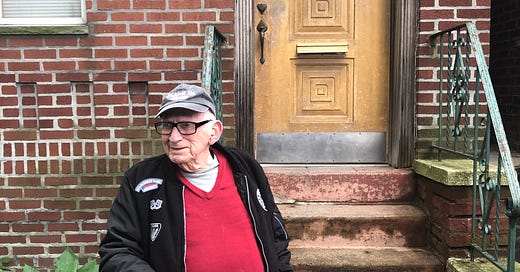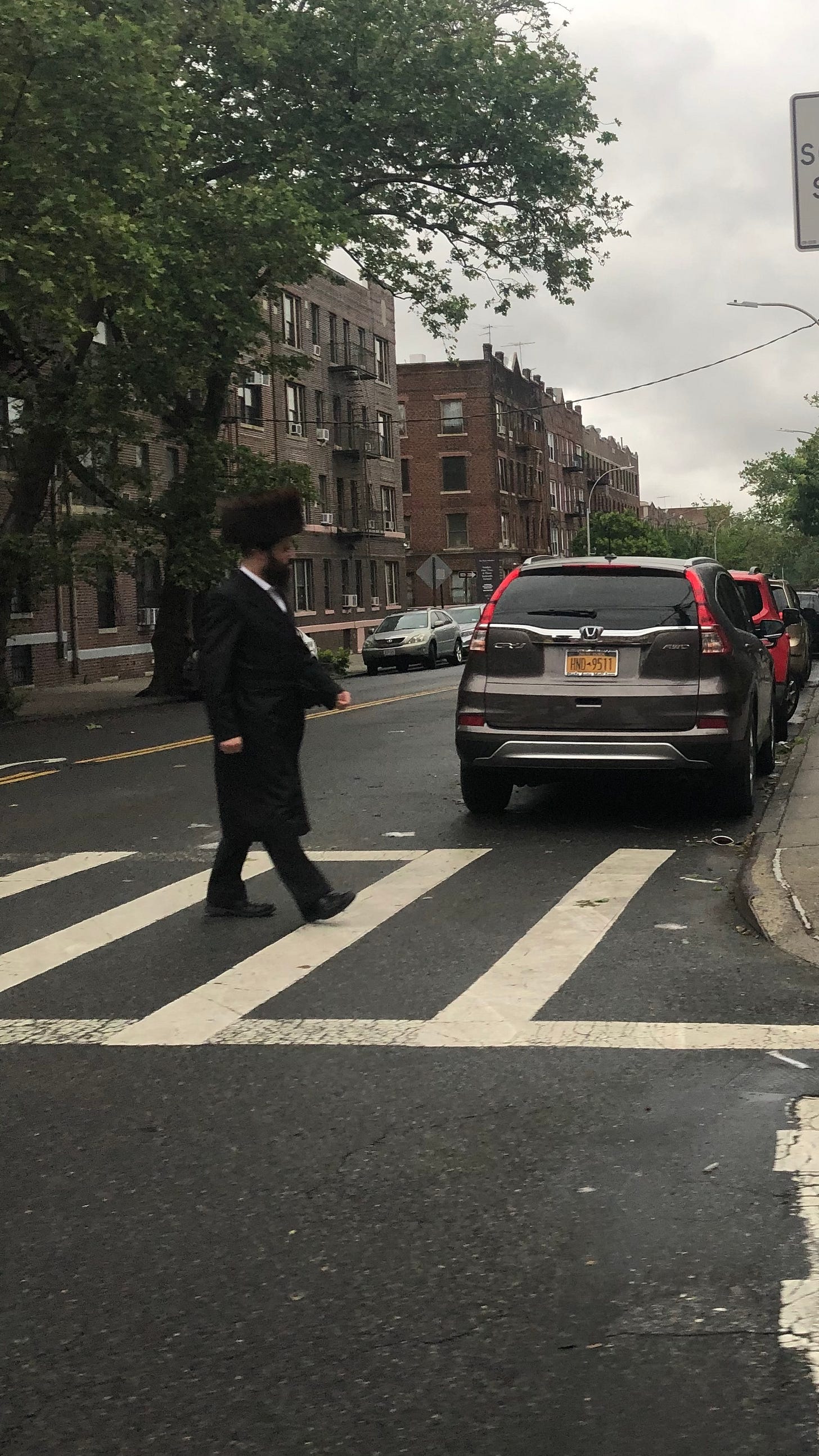Because the woman from Long Island and her son Chris have patience and love in abundance, they agreed to take my father and me to Brooklyn, generally, and to 922 57th Street in Borough Park, specifically, because I thought — how to put this delicately — it would be the last chance my father would get to see where he grew up, if that would even matter to him. Somehow, it mattered to me, for I was hoping there might be one moment, one building, one street corner that would jog some memory in a mind that is often elsewhere these days.
We drove by Hempstead, New York on the way, and he said, “Hempstead? Hempstead! My first tax client was there. West End Tavern. I think they’re out of business now.”
That alone was worth the trip.
Muscle memory is a funny thing, for my father remembered the Belt Parkway is a mess. Has always been “impossible,” will always be, especially on Sundays, even though, yes, today was Saturday.
“Why did you come this way? This is the long way,” he said to Chris. “Hey, is that London Bridge?” he asked, upon seeing The Verrazano-Narrows Bridge.
What did I learn?
Pitsy, whose real name was Selma, was Bernie Newman’s sister.
“Dad, why did they call her Pitsy?”
“I don’t know. She was small. She was a pitsy of a girl.”
“And she married Jerry Parker?”
“Yeah, how about that?”
I was cautioned not to confuse Leo Meltzer, who lived in the Bronx, with Lou Meltzer, who lived in Far Rockaway. Max Meltzer, another of my father’s uncles, was a good-looking man who married good-looking women, and Molly Meltzer, his aunt, married Harry Newman and together they “made” Bernie, who lived on 10th Street. Molly and Harry are probably dead, and the mystery of Bernie Newman and Bernie Schecter, for that matter, who lived in the Bronx, will, for now, remain one.
At 922 57th Street, my father commented about the surrounding homes, “They must have built the new ones later.”
Then this on the stoop: “I was born is this house.”
“You mean in the hospital when your family lived here?”
“No, I mean in the house.”
We drove through the neighborhood, passing an inordinate number of Hassidic Jews, to which my father asked, “Is this religion coming towards us?” right before noticing a Mexican food truck.
“How did the Spanish get here?”
There was a great moment in Avalon where the old man is taken through the old neighborhood. He then relays the events of the day to his grandson.
Couple of years ago, I went to see the house on Avalon.
It was gone.
Not just the house, but the whole neighborhood.
I went to see the ballroom, where me and my brother used to play.
The whole place, gone.
Not just that.
But the grocery store where we used to shop, gone.
All gone.
I went to see where Eva lived off Poplar Street. It isn't there. Not even the street.
It isn't there. Not even the street.
And then I went to see the nightclub I used to have.
Ah, thank God, it was there, because for a minute, I thought I never was.
Jack Friedman was. He did taxes in Hempstead.





I remember that house, two story walk up. Riva and Sam livied on the second floor. Garage in the back down a narrow aley. I went up there after my bar mitzvah to recite it to Sam who was in bed .very sick. Talk about remembering it like it was yesterday, not 60 years ago
Could be worse: "Although Ur was once a coastal city near the mouth of the Euphrates on the Persian Gulf, the coastline has shifted and the city is now well inland..." Try telling that to Jack.